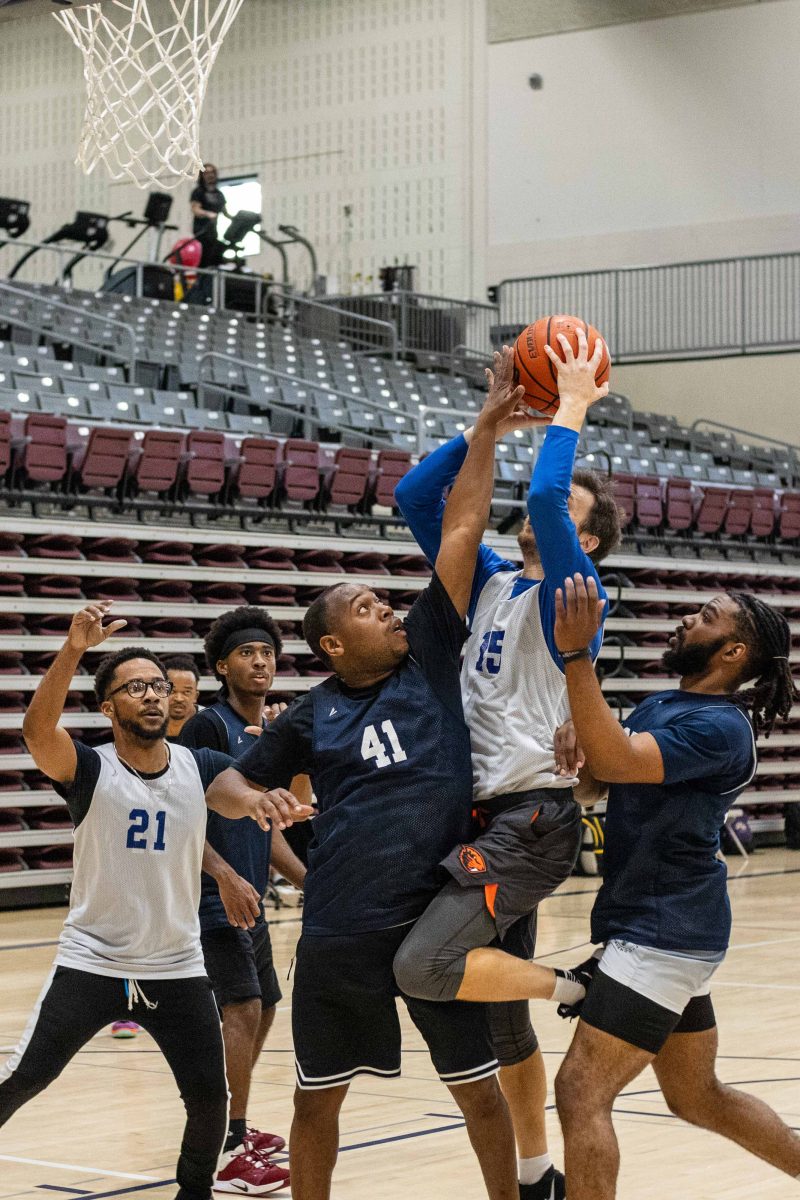Elizabeth Rhaney, Photo Editor
The Philosophy Club screened the movie “Hannah Arendt” at their meeting on April 3. The movie follows the famous philosopher, who survived a detention camp in France, as she covered the trial of former Nazi Adolf Eichmann.
As she watches the trial and reads the transcripts, Arendt tries to “reconcile the mediocrity of the man” with his shocking crimes. The weak man in the glass cage is not the monster she anticipated. Eichmann’s defense is that he was following orders. He kept the trains of people moving without good or bad intentions – without thinking about any possible consequences.
Arendt concludes that this inability, or possible unwillingness, to think causes ordinary people to do evil things. The greatest evil is committed by nobodies – humans who for whatever reason refuse to be human. She calls this concept the banality of evil.
Arendt also concludes that some Jewish leaders were hurting the community. They acted in a space between resistance against and cooperation with the Nazis. Her friends and colleagues assume she is blaming her own people for their suffering. Even dear friends ostracize her. But she argues that trying to understand does not equal forgiveness and that thinking gives people the power to prevent catastrophes.
The club had an open discussion after the movie. One issue that came up was that we all follow orders and that it takes a huge amount of thinking to look beyond your world. Thinkers can become isolated as they try to think outside the proverbial box.
“It’s a worst case scenario of what the system can make us do to each other,” one student said.
Another student compared the chain of command to “a runaway train.” Trying to get off could kill you.
“How could we dehumanize that quickly?” another student asked.
The group talked about how Hitler made Jews wear yellow stars in the years before WWII. He fostered an us-versus-them mentality, marking different groups as “others.”
“First you have to other yourself before you other another person,” said one professor. First a person separates their self into a group before they start separating other people into groups.
The Philosophy Club meets every third Thursday of the month in The Cave (the film studies room in Gamble Hall). Melissa Bates and Megan Netherland are co-organizers of the club.
“Our club meetings are open to all and we welcome all disciplines,” Bates said in an email. “Additionally, we strongly encourage faculty and students to submit “Thoughts” for discussion in the black Thought Box attached to The Cave board in Gamble, second floor across from the film room, Gamble 221.”
Erik Nordenhaug, associate professor of philosophy, is the club’s primary faculty adviser. Anyone interested in the club can email him at erik.nordenhaug@armstrong.edu.
The club also has a newsletter called “The Philosopher’s Stone” that comes out a week before the meetings. They are available on the philosophy board on the first floor of Gamble Hall.














